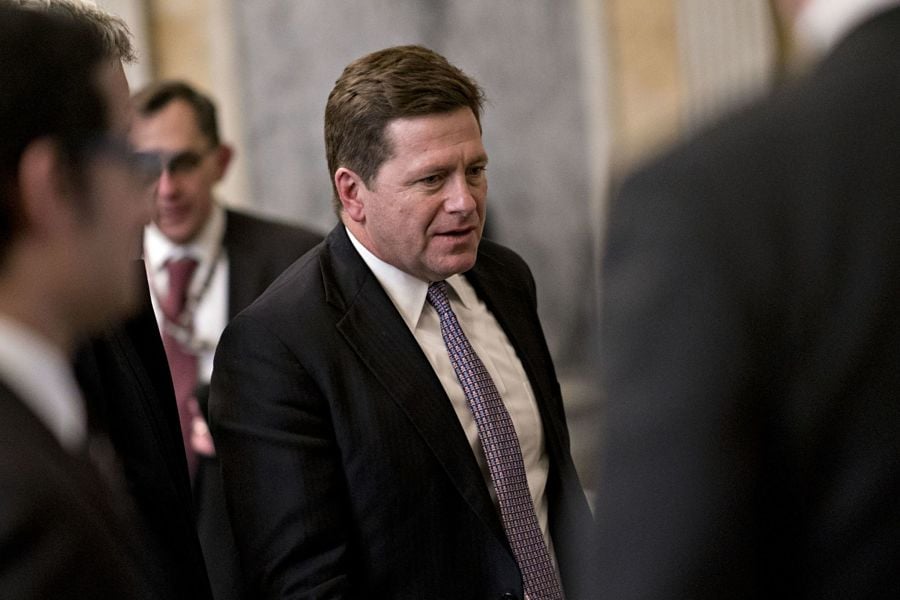

Former SEC chairman Jay Clayton, who is now working in the private sector and has no interest in returning to government work, believes government regulators could do a much better job serving investors and the broader financial markets.
Speaking Wednesday morning in Orlando, Florida, as part of the BNY Mellon Pershing Insite conference, Clayton drew stark contrasts between the Securities and Exchange Commission under the Biden administration and under the Trump administration.
“I think it’s pretty clear we’re in a very highly business-skeptical and commercial-skeptical regulatory environment,” he said. “Any time you go to extremes, either way, you get more bad than good.”
Clayton, who was SEC chairman from May 2017 through December 2020 and is now the nonexecutive chair at Apollo Global Management, said the regulatory whiplash leaves anyone participating in the financial markets with more questions than answers.
“People don’t know what is really happening, how long it is going to last, and what they should do about it,” he said in reference to what has been described as the most aggressive SEC ever.
On the subject of the democratization of alternative investments, which has been a recent SEC focus, Clayton acknowledged that he might be accused of “talking his book” as the representative of a firm that manages private investments, but said retail class investors are being locked out of the party.
“Capital formation these days largely comes from outside the public markets, yet the investing public is largely held outside those private markets,” he said. “All investors should have access to a portfolio that looks like a well-managed pension fund. With the help of a lot of the people in this room, I think we’re going to be able to do it.”
Lowering the hurdles toward democratization of alternative investments, he explained, requires the participation of the regulators, but also will take additional efforts on the part of investment management firms to create products that are suited for a broader universe of investors.
He took particular issue with the current accreditation rules, which haven’t been changed in 40 years, and don’t jibe with the current reality of individual investors being responsible for their own retirement income.
For example, he pointed out the absurdity of qualified retirement accounts giving retail investors access to highly liquid mutual funds and ETFs but not less liquid investments that would be better suited for long-term investing objectives.
“You’re paying for liquidity that you don’t need and can’t access,” he said. “Pick a target-date fund, for example. Why wouldn’t there be a sliver of privates or alternatives in there? If I’m a 401(k) investor, I should be able to get something that looks like a Calpers portfolio. Why wouldn’t you have a 10% slice of privates in your retirement portfolio when you’re 50 years old?”

President meets with ‘highly overrated globalist’ at the White House.

A new proposal could end the ban on promoting client reviews in states like California and Connecticut, giving state-registered advisors a level playing field with their SEC-registered peers.

Morningstar research data show improved retirement trajectories for self-directors and allocators placed in managed accounts.

Some in the industry say that more UBS financial advisors this year will be heading for the exits.

The Wall Street giant has blasted data middlemen as digital freeloaders, but tech firms and consumer advocates are pushing back.
Orion's Tom Wilson on delivering coordinated, high-touch service in a world where returns alone no longer set you apart.
Barely a decade old, registered index-linked annuities have quickly surged in popularity, thanks to their unique blend of protection and growth potential—an appealing option for investors looking to chart a steadier course through today's choppy market waters, says Myles Lambert, Brighthouse Financial.
